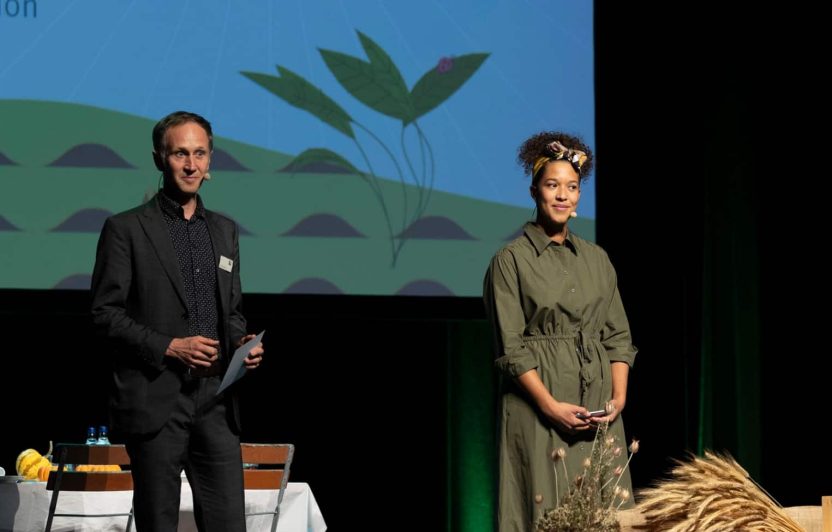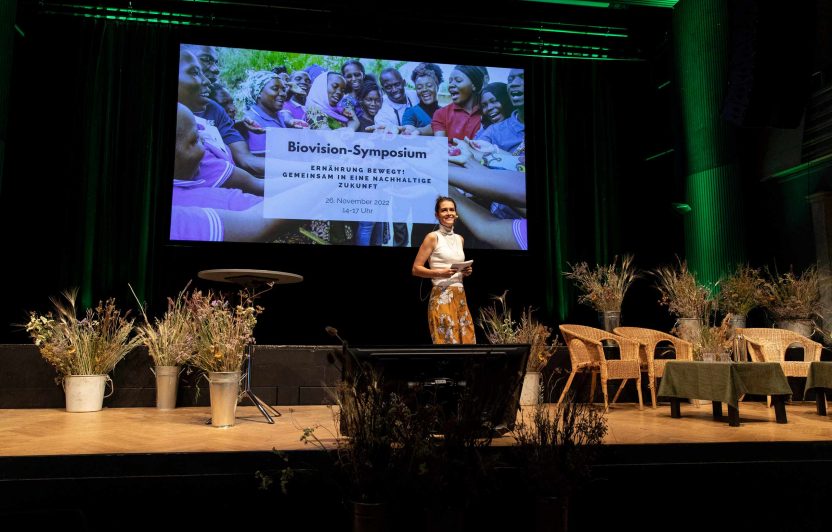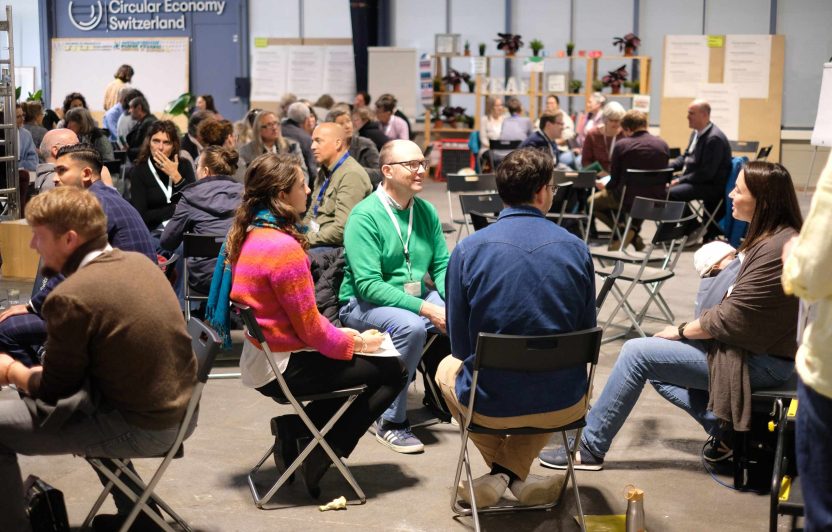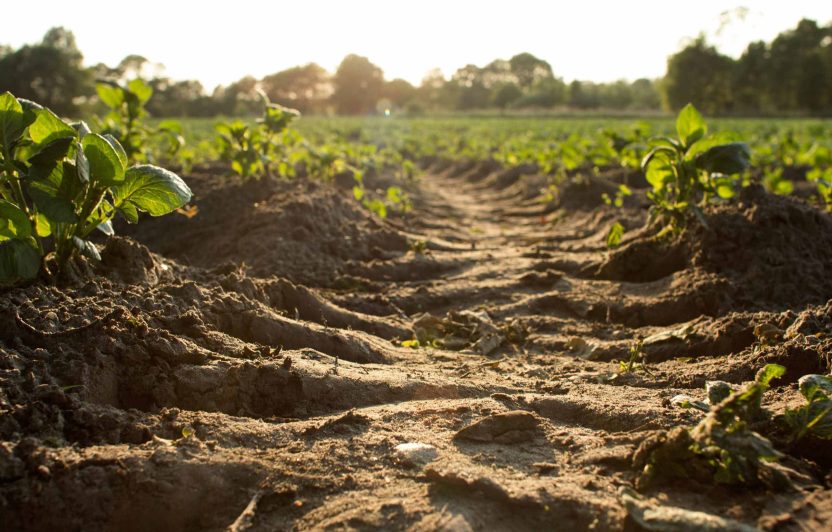Swiss food policy needs to rapidly become more sustainable and crisis resistant. Amidst the war in Ukraine, the climate crisis and the COVID pandemic, last year the discussion about the best food system for the future (finally!) resumed. The direction is clear: in its 2030 Sustainable Development Strategy, the Federal Council declares that the food system is a key lever for Switzerland’s success in meeting the 17 goals of the 2030 Agenda for Sustainable Development. Consumption and production are therefore also among the main topics in the Federal Council’s action plan. Last year, Biovision made an active contribution through several projects to ensure that Switzerland achieves the sustainability goals of the 2030 Agenda.
Educating the consumers of tomorrow
All actors must pull together to build a functioning, sustainable food system along the entire value chain – from the pitchfork to the soup spoon. This includes us as consumers. Since 2011, Biovision has been raising awareness among young people in Switzerland through the CLEVER project and providing helpful tips for environmentally and animal friendly as well as fair and socially just shopping. For this, CLEVER 2022 received a special platform for over 30,000 participants at the national “mova” scout camp in Goms: there, where girl and boy scouts traditionally learn how to care for nature, CLEVER conveyed ways to protect the environment by practising sustainable consumption in everyday life in its own exhibition tent.
In French-speaking Switzerland, Biovision was able to negotiate a partnership with the University of Lausanne in 2022. This is already showing concrete results: an educational module for teachers called “Healthy AND Sustainable Menu Plan” was developed and introduced, and the Culture and Scientific Outreach Unit has already used our material to organise workshops on sustainable consumption.It has also raised awareness in school classes about healthy soil by using acoustic and teaching material from the Sounding Soil project. Through CLEVER and Sounding Soil, Biovision directly reached a total of 9,280 people in Switzerland last year. Four out of five people who participated in the hands-on activity “Listening to Soil” said that they want to learn more about soil after the listening experience. In our survey, 46 % of CLEVER visitors responded that they want to make their shopping and consumption behaviour more sustainable in the future. And we are pleased to see that the trend towards that in Switzerland is positive: the number of people who consume organic food daily has increased by 25 % since 2018.

The floor arouses curiosity
With the two projects CLEVER and Sounding Soil, Biovision directly reached a total of 9280 people in Switzerland last year. Four out of five people who took part in the hands-on campaign “Listening to Soil” said after the listening experience that they now wanted to learn more about soil. 46 % of the CLEVER visitors answered in our survey that they want to make their shopping and consumption behaviour more sustainable in the future. And we are pleased to see that the trend in Switzerland is positive: the number of people who consume organic food on a daily basis has increased by 25% since 2018.

Momentum for policy change
What should a Swiss food policy that makes healthy, sustainable, animal-friendly and fairly produced food available to everyone by 2030 look like? And which path leads there? In cooperation with the Sustainable Development Solutions Network (SDSN) and the association Landwirtschaft mit Zukunft (agriculture with a future), Biovision provided answers to these questions as part of the Food Future Switzerland project. This took the form of more than 100 differentiated recommendations that address various levels throughout the value chain. These were developed over six months by the first Swiss Citizens’ Council for Food Policy. The members of the council, 80 people from all over Switzerland randomly selected by a market research institute, received balanced information from important research institutions and interest groups ranging from agricultural production, processing and trade to environmental and consumer organisations. They discussed each recommendation intensively and voted on it democratically afterwards. The result is a compromise in true Swiss style, and it points the way towards political solutions that are capable of winning majority support.

The second impetus for a sustainable food future in Switzerland is the scientific guide “Pathways to the Future of Food in Switzerland” (published in German). It was compiled by 42 researchers from renowned Swiss institutions and lays out a concrete political path of action that can be used to successfully transition to a sustainable food system in Switzerland. The two reports were presented to Federal Councillor Guy Parmelin in front of 260 participants at the first Swiss Food Systems Summit in early 2023. At the summit, representatives from the food system (from production to trade and consumption) and science, civil society, politics and administration discussed the proposals on how a food policy can be sensibly designed. They came to a happy conclusion: a win-win transformation of the food system that serves the environment, producers and the population equally is indeed possible.
Promoting sustainable development in Switzerland
How our food is produced, processed and consumed has a significant impact on the carbon footprint at home and abroad. Biovision raises public awareness and motivates people and institutions to actively engage in the implementation of the 2030 Agenda for Sustainable Development and work towards an agroecological transformation. We made an important contribution to this in 2022 with the CLEVER, Sounding Soil and Food Future Switzerland projects.






